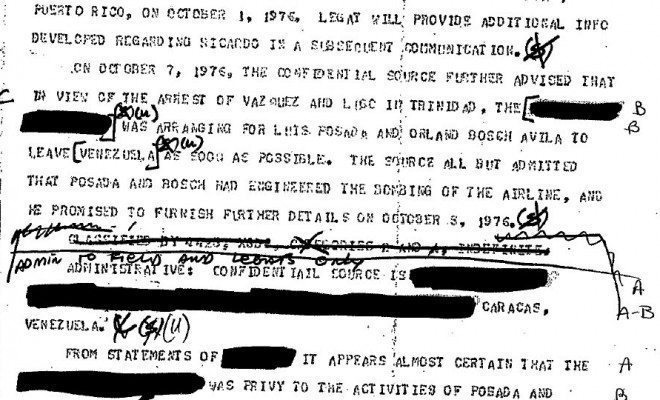 Image courtesy of [Zleitzen~commonswiki via WikiMedia Commons]
Image courtesy of [Zleitzen~commonswiki via WikiMedia Commons]
News
Senate Votes to Declassify CIA Documents
Americans may soon get some information regarding CIA operations and intelligence procedures in the post 9-11 information gathering frenzy.
For the past five years, the Senate Intelligence Committee has been compiling a report totaling 6,300 pages, in which details of the Agency’s information-gathering tactics are assessed. The committee began looking into the Agency’s actions after 9/11. In 2012, the report was completed but remained confidential. And apparently, it doesn’t reflect too highly on the CIA. This Thursday, the Committee voted to declassify a 480-page summary of the report. Now, the White House has to agree by giving the final approval.
But declassification may not be as straightforward as many hope it to be. Before the findings are released, the CIA will have the opportunity to redact any statements which compromise national security. And rightfully so- the public doesn’t need to know every detail of what the Agency has been doing for the past decade. But the question has to be asked- if this document is so detrimental to the Agency, as Committee Chairwoman Diane Feinstein has claimed, will it stop at redacting only the parts of the document that are a threat to national security?
Another problem is the time it will take for this document to be declassified. Some suspect that because there are still trials for terrorists going on, groups like the Pentagon and FBI need to be called in to review the documents further to ensure information critical to those trials is not released. President Obama has supported declassifying the report, but his press secretary Jay Carney made it clear Obama doesn’t have a specific timeframe in mind, saying “he would expect that the actions that are necessary to declassify a document that be conducted in all due haste,” but refusing to give a specific timeframe in which they would happen.
But perhaps most problematic with the potential declassification of these documents is the fact the findings might not change anything. When Obama came into office in 2009, he stopped waterboarding. While it’s important the Senate has looked into these activities, what if releasing this information to the public is untimely? If the CIA has amended their policies to conform to Obama’s standards, is there any substantive benefit that could come from the public seeing how they messed up years ago?
I would argue yes, to an extent. From Edward Snowden to Chelsea Manning, the American public has been debating whether or not this kind of information should be provided in large quantities, and who should release the information in the first place. This committee report seems to be the best of both worlds: information released about government actions from a reliable source, in a way that won’t compromise national security. Americans will get more transparency, but not in a way that puts intelligence officers, or relations with other countries, on the line.
But at the same time, what does the American public gain from finding out about the ill actions of the CIA years ago? While there is probative value to understanding how past administrations have functioned, and this may allow citizens to stay cognizant of government officials (both elected and otherwise), it’s possible there will not be enough context provided in regards to this report. Without working background knowledge on the subject, a lot of people could look at snippets of information while missing the bigger picture.
So this declassification seems to be a step in the direction of transparency for American citizens, but a standstill for actual change in CIA policy. Ultimately, that will have to come from powers much higher up than the average American reading the report.
[White House] [CNN] [Huffington Post] [USA Today]








Comments